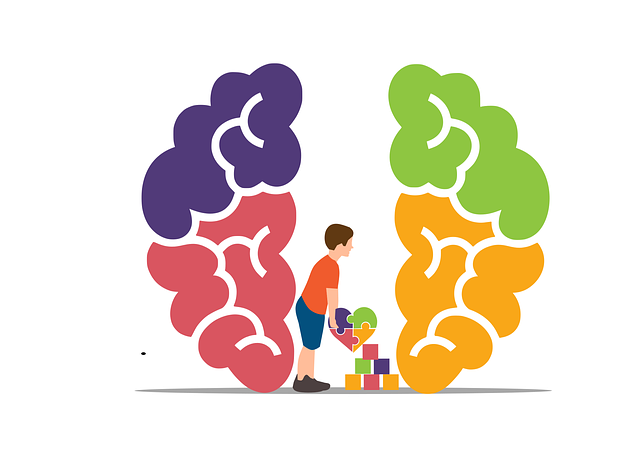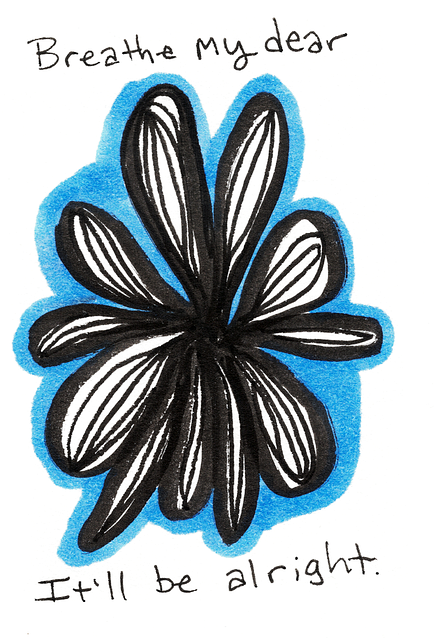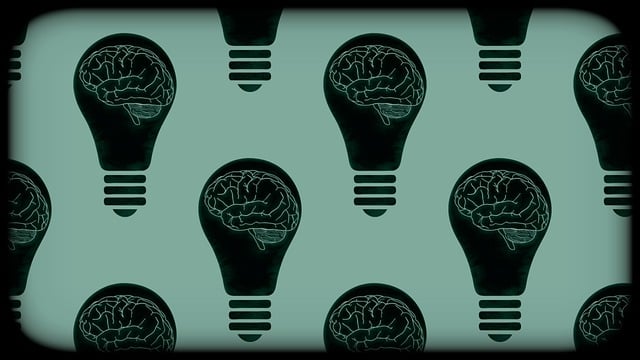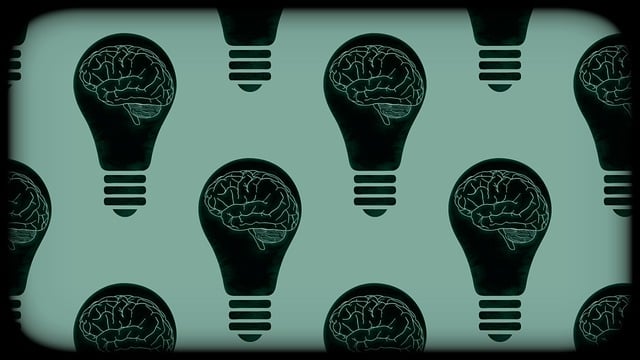Media representation significantly impacts public perception of mental illness, often perpetuating stereotypes that discourage therapy-seeking and hinder progress against stigma. Inaccurate portrayals, such as oversimplifying or stereotyping individuals dealing with emotional challenges stemming from conditions like cancer, impede understanding and recovery efforts. To counteract this, initiatives promoting accurate, empathetic media portrayals are crucial. The Highlands Ranch Cancer Issues Therapy (HRCIT) takes a solution-oriented approach, emphasizing trauma support and mental well-being advocacy to foster compassionate societal attitudes towards mental health issues, mirroring the care given to physical conditions.
Mental illness representation in media is a complex issue, often perpetuating harmful stereotypes that contribute to stigma. This article explores the current state of mental health portrayal in the media and highlights challenges that fuel societal misconceptions. We delve into strategies for more accurate and empathetic depictions, focusing on the success of Highlands Ranch Cancer Issues Therapy as a solution-oriented approach. By examining real-world examples like this innovative program, we can navigate towards a more nuanced and supportive narrative around mental illness.
- Understanding Mental Illness Representation in Media: The Current State
- Challenges and Stereotypes: How Media Contributes to Stigma
- Strategies for Accurate and Empathic Depictions of Mental Health
- Case Study: Highlands Ranch Cancer Issues Therapy as a Solution-Oriented Approach
Understanding Mental Illness Representation in Media: The Current State

In today’s digital age, media plays a significant role in shaping public perception about various social issues, including mental illness. The current state of mental illness representation in media is a complex tapestry woven with both positive strides and lingering challenges. On one hand, there has been an increasing awareness and effort to reduce the stigma associated with mental health struggles, with many platforms showcasing diverse narratives and characters grappling with conditions like depression and anxiety. This shift has been instrumental in encouraging open conversations about emotional well-being, particularly among younger audiences.
However, despite these advancements, media still perpetuates stereotypes and provides inaccurate portrayals of mental illness. From glamorizing self-harm to oversimplifying complex disorders, these representations can be detrimental, hindering individuals from seeking appropriate therapy and support for issues like Highlands Ranch cancer issues or mood management. Moreover, the lack of diverse representation further exacerbates the problem, as many stories fail to reflect the lived experiences of different demographics, thereby reinforcing existing mental illness stigma reduction efforts.
Challenges and Stereotypes: How Media Contributes to Stigma

Media representation plays a pivotal role in shaping public perception about mental illness, often perpetuating harmful stereotypes that contribute to stigma. In Highlands Ranch or any community, the media’s influence cannot be understated, especially when it comes to sensitive health issues like cancer and its impact on mental well-being. Many times, portrayals of individuals with mental health challenges are oversimplified or inaccurate, reinforcing outdated myths. For instance, depicting characters as either dangerously unstable or meek and fragile reinforces a false dichotomy that overlooks the vast spectrum of mental illness experiences.
This misrepresented imagery can discourage people from seeking therapy or understanding their own emotional well-being. It also affects how society views those who are recovering or living with chronic mental health conditions, potentially hindering progress in healthcare provider cultural competency training and mental health policy analysis and advocacy. To challenge these stereotypes, it’s crucial to promote more nuanced and accurate portrayals through media literacy initiatives, and encourage the use of Emotional Well-being Promotion Techniques that foster empathy and understanding.
Strategies for Accurate and Empathic Depictions of Mental Health

In representing mental illness in media, accuracy and empathy are paramount. It’s crucial to consult with experts like therapists and mental health advocates from Highlands Ranch cancer issues therapy centers to ensure storylines reflect reality. Depicting characters’ struggles authentically involves understanding various conditions, from depression to PTSD, and showing their unique impacts on daily life. By avoiding stereotypical portrayals and instead focusing on individual experiences, media can foster empathy among viewers, helping to break down the mental illness stigma reduction efforts.
Storylines should also highlight the importance of resilience building and trauma support services, demonstrating that recovery is possible. Accurate representations encourage viewers who may be struggling to seek help and validate their experiences. Ultimately, responsible media coverage can contribute to a more compassionate society, where mental health issues are understood as legitimate challenges deserving of care and support, just like any other health condition.
Case Study: Highlands Ranch Cancer Issues Therapy as a Solution-Oriented Approach

In the context of mental illness representation in media, a notable case study is the Highlands Ranch Cancer Issues Therapy (HRCIT). This approach takes a solution-oriented strategy to address mental health challenges, offering a fresh perspective on how communities can tackle psychological issues. HRCIT focuses on fostering compassion and cultivating practices that enhance mental well-being, aligning with principles established through Mental Health Policy Analysis and Advocacy.
By prioritizing these compassionate cultivation practices, HRCIT provides trauma support services tailored to the unique needs of its community. This proactive approach not only alleviates existing symptoms but also promotes resilience, ensuring individuals equipped to navigate future challenges. The success of HRCIT underscores the potential of solution-focused therapies in revolutionizing mental health care, ultimately improving representation and understanding of psychological conditions in media narratives.
Mental illness representation in media has long been a topic of contention, with many challenges and stereotypes perpetuated. However, solutions like Highlands Ranch Cancer Issues Therapy demonstrate that accurate and empathic depictions are achievable. By employing evidence-based strategies and fostering open dialogue, media can play a crucial role in reducing stigma and promoting understanding. Recognizing the impact of media portrayal and actively seeking out innovative approaches, such as the therapeutic models shown in this case study, is essential to creating a more inclusive and supportive society for those dealing with mental health issues.














